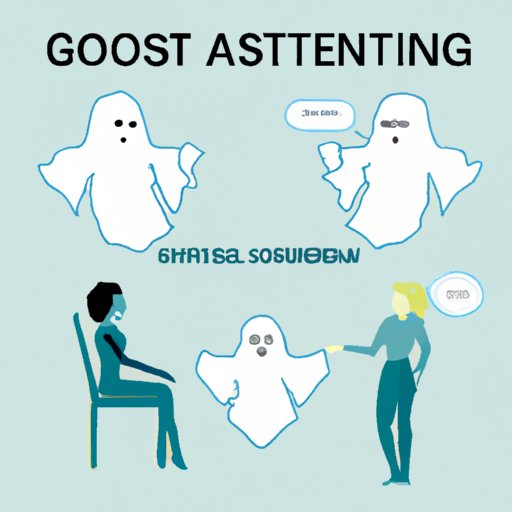Introduction
Ghosting is a term that has become increasingly popular in recent years, but it’s not a new phenomenon. The term refers to when someone suddenly cuts off all communication with another person without warning or explanation. It can come as a shock and leave the person on the receiving end feeling hurt and confused. If you’ve been ghosted, you’re likely struggling to make sense of what happened and wondering how to move forward.
It’s important to remember that you are not alone in this experience, and there are steps you can take to cope and heal. In this article, we will explore how to respond to being ghosted, from acknowledging your feelings to seeking professional help if needed.
Acknowledge Your Feelings
When someone ghosts you, it can leave you feeling a range of emotions, from confusion and sadness to anger and betrayal. It’s important to acknowledge these feelings and allow yourself to feel them, rather than trying to push them away. Recognize that it is not your fault and that these feelings are a normal reaction to the situation.
Journaling can also be a helpful way to process your emotions. Writing down your thoughts and feelings can help you make sense of them and can be a cathartic release. You don’t have to follow any particular format; just write whatever comes to mind.
Don’t Make Excuses for the Other Person
When someone ghosts you, it can be tempting to make excuses for their behavior. Perhaps you tell yourself that they must have had a good reason for ending the relationship so abruptly. But it’s important to remember that their actions speak louder than words. Don’t let yourself be taken advantage of or treated poorly; remind yourself that you deserve better.
Take Time to Reflect
Once you’ve acknowledged your feelings, it can be helpful to take some time to reflect on what happened. Gain a bit of perspective on the situation and consider why this may have happened. Was it something you did or said? Or was it something out of your control? Understanding why the other person ghosted you can help you make sense of the situation.
Reach Out, But Don’t Overwhelm
If you feel comfortable doing so, it can be beneficial to reach out to the other person and ask why they ghosted you. However, be sure to respect your own boundaries and give the other person space. Don’t overwhelm them with questions or accusations; simply state your feelings and ask for an explanation.
Consider Cutting Contact
If the other person does not respond or offers an unsatisfactory explanation, it may be best to cut contact. Understand that this is a valid option and take some time to think through your decision. Depending on the nature of the relationship, it may be necessary to block the other person on social media or take other measures to protect yourself.
Take Care of Yourself
No matter what decision you make, it’s important to take care of yourself during this difficult time. Find healthy ways to cope, such as spending time with friends and family, engaging in physical activity, or doing things that you enjoy. Avoid turning to unhealthy coping mechanisms, such as substance abuse or self-harm.
Seek Professional Help if Needed
If you find yourself struggling to cope, it’s okay to ask for help. Consider seeing a therapist or counselor who can provide support and guidance. Talking to a professional can help you work through your feelings and heal from the experience.
Conclusion
Being ghosted can be a painful and confusing experience. It’s important to acknowledge your feelings, take time to reflect, and find healthy ways to cope. If you need help, don’t hesitate to seek professional assistance. With time and patience, you can move forward and heal.
(Note: Is this article not meeting your expectations? Do you have knowledge or insights to share? Unlock new opportunities and expand your reach by joining our authors team. Click Registration to join us and share your expertise with our readers.)
